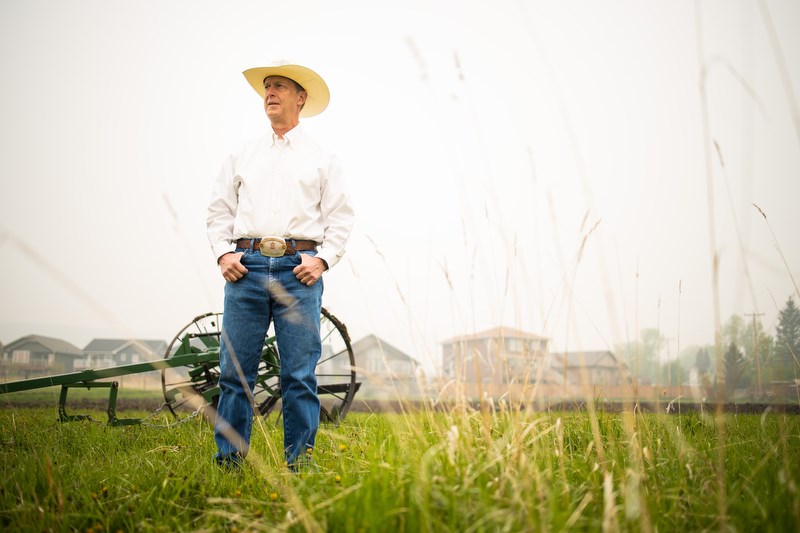A Turner Valley distillery is moving ahead with plans to expand after its request to redesignate former farmland to allow for agriculture, commercial and industrial use was approved Monday.
Turner Valley Town council approved changes to a land use bylaw at its June 17 meeting that allows Eau Claire Distillery to use seven acres of land it purchased behind its distillery last year to grow a garden for the Oilfield Food Bank, grow a barley field for farming demonstrations, build an animal paddock for oxen and horses and allow for the construction of buildings, such as a hotel and storage facility.
David Farran, distillery owner, couldn’t be reached for comment following council’s decision, but told the Western Wheel in a previous interview that it will be a great addition to the community.
Councillors who spoke at Monday’s meeting, when council unanimously passed second and third reading for the bylaw, expressed support for the proposed project.
When second and third reading came before council following a public hearing on May 28, council deferred its decision to the June 17 meeting after hearing almost four hours worth of discussion from the public and Turner Valley planning co-ordinator Gerry Melenka.
While most who spoke supported the bylaw at the public hearing, Melenka expressed concerns, saying it lacked important details and failed to address safety issues expressed by the local fire department and emergency services.
Council directed administration to work with the applicant to make some changes to the bylaw to bring back to council, but the revisions didn’t address many of the concerns expressed by Melenka last month.
Melenka had presented a separate bylaw on May 28, providing an alternative option to the proposed bylaw which he said he worked on in consultation with Farran, but the alternative bylaw was declined by council.
Melenka said the amendments to the bylaw that was presented to and accepted by council on Monday do not address many of those concerns.
“The fundamental one is the incompatability of uses,” he told council. “We’re talking about combining agricultural use, which we have no district for, with commercial, which we have two districts for, and industrial, which we also have two districts for.”
Not included in the amendments was administration’s requirements for an erosion and sediment control plan, construction management plan and sewage monitoring and reporting plan - all of which will have to be dealt with at the development permit stage, explained Melenka.
“We won’t have much of a guiding document to work (with),” he said.
Also not considered in the bylaw is a manure management plan.
“By allowing agricultural development in the town, accepting it as a permanent use, there might be the need for a manure management plan,” he said. “We haven’t done a direct control bylaw of this nature in town. The ones we have done are residential and are pretty innocuous.”
The land use bylaw states that Turner Valley council is the development authority on the property, as was requested by the applicant, said Melenka.
“It may be more cumbersome and timely for processing applications,” he told council.
Coun. Garry Raab said he’s pleased that council will have the ability to voice its concerns throughout the development phase, and that council may request input from the Municipal Planning Commission (MPC) or administration throughout the process.
“We’re dealing with a person who’s been in the community for six years and I have every confidence it will work out in the town’s best interest and that of the developer,” he said.
Melenka responded that while council is the development authority when the applicant submits permit applications, administration will also be included in the process.
“When that application comes in I will bring recommendations forward,” he told council. “You may defer to the MPC or staff as we try to go through this exercise. When we’re dealing with the actual development of the site we will deal with whatever the concerns will be with that particular phase or development of the project.
“The decision rests with you guys on every level.”
Coun. Jamie Wilkie, who requested a list of potential risks in the amended bylaw from Melenka at the beginning of the discussion, said he feels those risks can be mitigated through the diligence of council and recommendations from administration at the development permit stage.
“We just have to be diligent and attentive in dealing with these in ensuring we’re covering all our bases and managing our risks,” he said.
Mayor Barry Crane, who couldn’t vote on the bylaw as he didn’t attend the May 28 public hearing, said it’s important to point out what administration is looking for and to have that on record.
He said he looks forward to working with administration and is excited about Farran’s investment.




